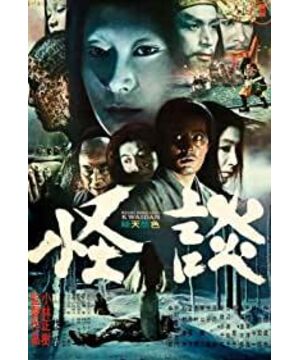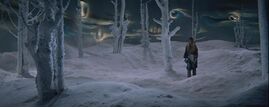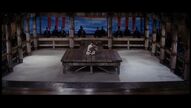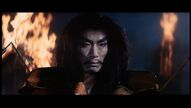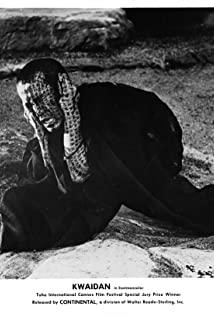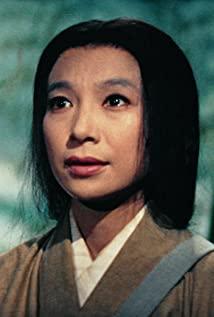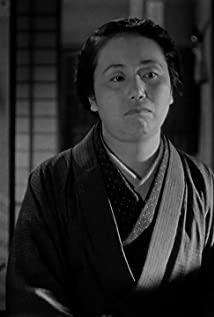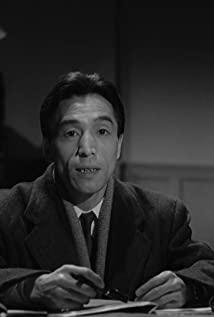"Black Hair" is a simple story. It tells the story of a down-and-out samurai who abandoned his wife to marry a woman from everyone (doesn't know how to climb up), but still misses his wife, and returns home after many years to get revenge on his wife who was turned into a ghost. Horror scenes are rare, but the director's superb ability to create atmosphere keeps people in a state of uneasy fear all the time. The source of the classic Japanese horror movie scene of "the old dilapidated and empty house" is probably here. This story is poised to do a great job, and when it finally explodes, it feels like a thousand miles away. Although the ending of such a story does not need to be guessed, it is still shocking when it is actually presented. Even the elements it uses are so common: a rotten floor that stomps on every now and then, a house that won't open, haunted ghosts (hair), an instantly aged face. This story is also the only one of the four stories that has a stronger flavor of horror. The 1964 production is a model of this type of film.
The story of "Snow Girl" is somewhat similar to "Liu Yi's Biography", but it is not as lively, just as quiet, and adds a lot of indescribable sadness. This is my favorite of the four stories. Xue Nu didn't kill the handsome young woodcutter, and later married him as a woman. The ten-year-old feelings of the corpse can't resist the betrayal. A snowy night woodcutter betrayed and told a story that had been hidden for ten years. Although the snow girl did not kill him as she said at the beginning, she resolutely left her husband and children who had been with him for many years. The red-edged straw sandals that were gradually buried by the snow in the snowy night were soaked in the woodcutter's regret and sorrow. Although there are monsters who kill people in the snowy night, the film presents a life scene in a paradise. Especially when Snow Maiden took her child to sweep the tomb of her mother-in-law, smiling and chatting with the woman washing clothes by the pool. The tranquility just melts people. In addition, it should be specially mentioned that the sky on the snowy night, the magical colors are fascinating. The vast white earth and the raging wind and snow, but the sky is filled with eyes big and small, with the red of roses deep and shallow. Somehow I thought it was sad, like the way this story feels, what a beautiful story a little betrayal ruins. At the end of the story, the snow girl naturally did not come back, and the woodcutter's remorseful straw sandals were also buried in the snow. There is also a romantic story buried together. The beautiful wife wears these straw sandals and walks admiringly in front of the woodcutter to discuss the New Year's Day for the children, smiling very happily. But it was all sold, Jingjingfeng seemed to listen, the snow was still falling, quietly as if nothing had happened. The story ends abruptly here, which is good. How embarrassing it would be if the three children woke up the next day crying and begging for their mother. The stern and sometimes gentle image of Snow Girl Twelve keeps Kawabata Yasunari in his mind, and there is just a book of "Snow Country" that can be casually flipped through.
"Earless Qin Shi Fangyi" tells the story of "confidence" between people and ghosts. This story is also not complicated, but it drags on for a long time. It incorporates many elements of Japanese culture, such as picture scroll paintings, Gu musicians, pipa playing and singing, body calligraphy... It is very oriental. The author has a great intention to show off his skills here, and it is very beautiful, but the vulgar people such as me only remember the scene where the ghost came to invite Fang to see two ears. This is a very heroic story. In the end, the musician sat upright and sang the thrilling battle, and the ghosts of the Ping family sat around. Some people say that the design of the ear is very humorous, but I think it is a very tragic thing - "Earless" is the pain of Fang Yi becoming a master.
"In the Tea Bowl" is full of bad fun. For some reason, I remembered the story of "The Taoist of Laoshan Mountain", and the nerd who bumped into a big bag scratched his head and cursed the old man, and the story was over. It's just that this "no ending" story has a more interesting narrative structure. The boss who urged the draft saw the writer's face from the water tank, and everything came to an abrupt end.
When it is written, it has no flavor at all. No way, I have to recommend those who are interested to look for it. "Strange Talk", 1964, Kobayashi Masaki. It's really suitable to calm down and enjoy it slowly, just like the feeling of chatting around the hearth on a snowy night, because the movie itself is very slow. If you are in the mood for drinking, it's still "Midnight Bell".
View more about Kwaidan reviews


